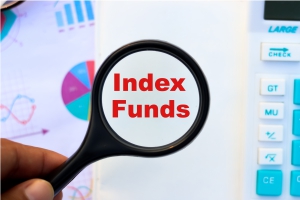If you are in the market for different types of financial products and want to introduce fresh funds to your portfolio, then you may want to divert your attention to equal weight index funds. These funds invest an equal amount in the stocks of each company that constitutes the index, regardless of its market value. Investing in these funds gives you a more diversified portfolio. Let’s find out more.
What is an equal weight index fund?
There are several types of mutual funds, including index funds. Equal weight index funds are like index funds and follow a benchmark index by investing in the same stocks as the index. However, unlike index funds, equal weight index funds invest in all the stocks of the index equally. These funds give equal weightage to all stocks, because of which each stock and its individual performance impact the fund’s overall return in an equal manner.
Let’s hop onto the weightage of the top companies in Nifty 50.
Weightage of Top 10 Companies in NIFTY 50 Index and NIFTY 50 Equal Weight Index as of December 30, 2022
Name of the company | Weightage in % in NIFTY 50 Index | Weightage in % in NIFTY 50 Equal Weight Index Fund |
Reliance Industries Ltd. | 10.98 | 2% |
HDFC Bank Ltd. | 8.96 | 2% |
ICICI Bank Ltd. | 7.76 | 2% |
Infosys Ltd. | 6.90 | 2% |
Housing Development Finance Corporation | 5.94 | 2% |
Tata Consultancy Services Ltd. | 4.17 | 2% |
ITC Ltd. | 3.65 | 2% |
Kotak Mahindra Bank Ltd. | 3.31 | 2% |
Axis Bank Ltd. | 3.16 | 2% |
Larsen & Toubro Ltd. | 3.15 | 2% |
Source : https://www1.nseindia.com/content/indices/ind_nifty50.pdf
Equal weight indices vs market-cap weighted indices: Differences explained
Equal weight indices and market-cap weighted indices represent two different styles of investing. Equal weight indices allocate an equal weight to all the stocks in the portfolio. But, in the case of market-cap weighted indices, larger companies and higher-value stocks get more weightage in the index’s composition.
Both types of index funds have advantages and disadvantages, and you must consider your investment goals, risk tolerance and preferences when choosing which one to invest in. Here are some things that can help you decide.
- The equal weight index is based on the value approach, where the objective is to buy underperformers and sell outperformers to ensure equalness in the weight of the stocks. On the other hand, the market-cap weighted index is based on the momentum style, where it continues to increase its holdings in companies whose prices have increased.
- Due to their investing styles, equal weight indices hold a combination of high and low-priced stocks. On the other hand, market-cap weighted indices generally invest in top companies. Thus, the former offers more diversification.
- Equal weight index funds have a higher expense ratio compared to market-cap weighted funds.
Conclusion
Equal weight index funds can be good for diversification as they quite literally distribute capital equally among all stocks. This can be a good way to mitigate risk and gain exposure in the market. However, it is advisable to understand all the pros and cons carefully, evaluate your risk appetite and then pick suitable funds for your financial goals.
An investor education initiative by Edelweiss Mutual Fund
All Mutual Fund Investors have to go through a one-time KYC process. Investors should deal only with Registered Mutual Fund (RMF). For more info on KYC, RMF and procedure to lodge/redress any complaints, visit - https://www.edelweissmf.com/kyc-norms
MUTUAL FUND INVESTMENTS ARE SUBJECT TO MARKET RISKS. READ ALL SCHEME-RELATED DOCUMENTS CAREFULLY
Trending Articles
MUTUAL FUND INVESTMENTS ARE SUBJECT TO MARKET RISKS, READ ALL SCHEME RELATED DOCUMENTS CAREFULLY.




















